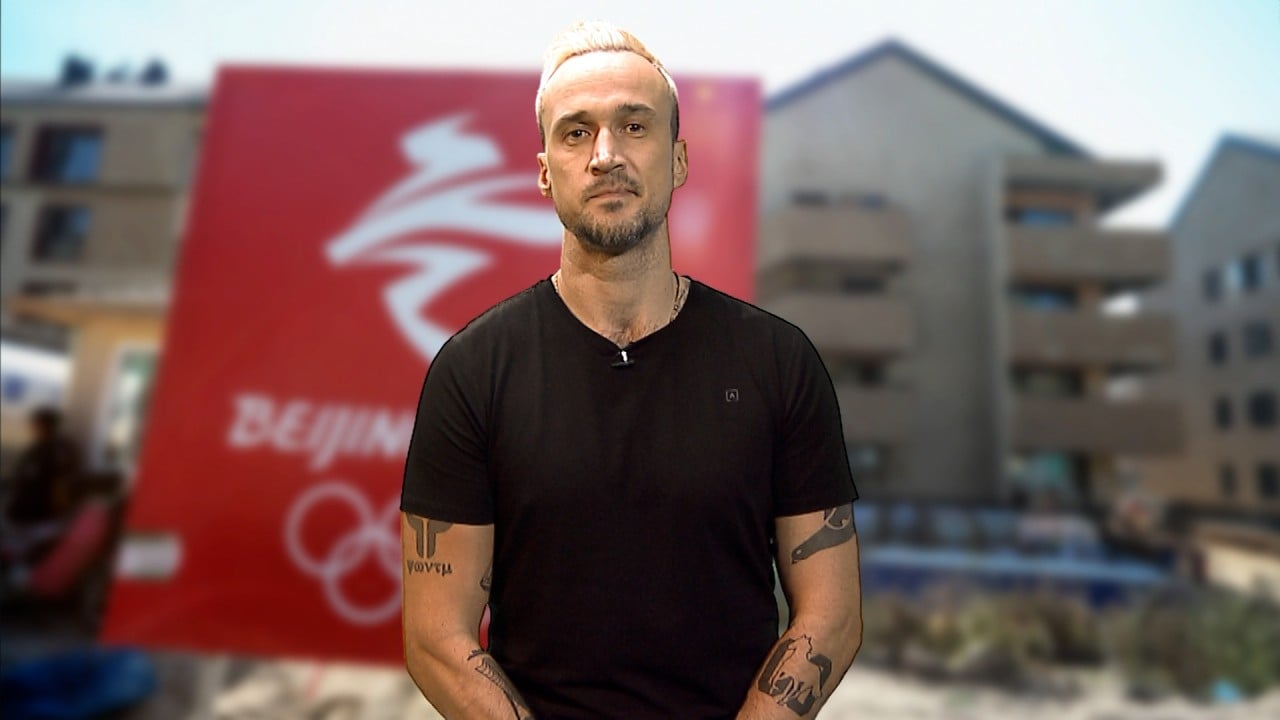
Winter Games 2022: Xi Jinping checks Olympics progress amid boycott calls and coronavirus outbreak
- Preparations for the Olympics in Beijing and Zhangjiakou are under way as Communist Party marks its centenary
- Vaccination could help offset risk for the event, observer says
Xi inspected preparations for the 2022 Beijing Olympic and Paralympic Winter Games in the capital, saying he was very confident the games would go well.
“I’m very gratified to see the preparations are well under day and the athletes’ training is producing obvious results,” he was quoted by state news agency Xinhua as saying.
Xi said the preparations were a high priority for the Communist Party, and the party and the public had given the events tremendous moral and material support, Xinhua reported.
On his tour on Monday, Xi visited the Capital Gymnasium in Haidian district, the National Alpine Skiing Centre and the National Sliding Centre in Yanqing district to discuss venue construction and athletes’ training, Xinhua reported.
Xi also visited Zhangjiakou on Tuesday to talk to athletes, coaches and organisers there.

In 2015, China won the right to host the games in Beijing and Zhangjiakou in neighbouring Hebei province, putting the capital on track to be the first host city of both a Summer and Winter Olympics.
China is accused of incarcerating more than a million Uygurs, a mostly Muslim ethnic group, in the country’s west in facilities that Beijing describes as vocational training centres.
Tokyo 2020: prioritise athletes for vaccine so Olympic Games can go ahead, say IOC’s Dick Pound
In September, more than 160 human rights groups sent a letter to International Olympic Committee chief Thomas Bach, calling for the games to be moved from China because of rights abuses.
The pandemic is already casting a long shadow over Japan’s prospects of hosting the Summer Games this year.
And in Hebei, where most of the skiing events will be held, difficulties for next year’s event are compounded by a coronavirus outbreak there.

03:26
Will China face a massive boycott over the 2022 Beijing Winter Olympics?
Roughly 1,000 people have been reported infected in the Hebei outbreak since the first case was reported in a village on January 2.
Millions of people were put under lockdown in hotspots Shijiazhuang and Xingtai on January 6, but there are no signs of the cases abating.
Chinese health specialists have admitted that there is a challenge to control the disease in rural areas because quarantine, testing and public awareness lag behind urban areas.
As Chinese cities face new Covid-19 lockdowns, have 2020 lessons been learned?
The lead-up to the games comes as the party celebrates its centenary this year.
People’s Daily, the party’s mouthpiece underscored the point in a commentary on Tuesday.
“The Winter Olympics is a key landmark event at an important historic point for China. It’s a vital opportunity to showcase China, and boost China’s development and national spirit,” it said.
George Magnus, a research associate at Oxford University’s China Centre, said the sporadic Covid-19 outbreaks in China were worrying but not yet a concern for the Olympics, because a big share of the population would be vaccinated by the end of the year.
“But we are all operating in the dark here, and if infection prevalence erupts again next winter in China and the northern hemisphere and travel restrictions are tightened or reimposed, then obviously there could be a threat to the Olympics. Contagion risks could certainly lead to nations deciding not to attend,” Magnus said.
“The other major risk to the event is political, and depends on whether a group of countries or many might decide to make a point about what they feel is China’s truculent behaviour in its relations with other nations, over international norms, and towards its own citizens in Hong Kong and Xinjiang.”
China possibly committed ‘genocide’ against Xinjiang Uygurs, says US report
He said it was not clear whether there was a political consensus yet to make such a point.
“But with a new US administration now being installed that had pledged to strengthen its alliances and international relations stances, it’s possible this could change if Sino-Western tensions were to intensify,” Magnus said.
Steve Tsang, director of the SOAS China Institute in London, said that no matter what the pressure, the Olympics was not likely to be cancelled.
“Xi’s reputation is at stake and the Winter Games must be held at all costs,” Tsang said. “[The administration] will draw lessons from the current outbreaks and work out a plan to make sure the Winter Games will happen next year.”

